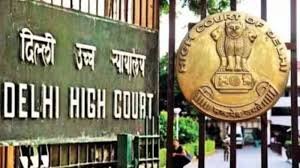Court says ad disparages entire Chyawanprash industry; orders removal from all platforms within three days.
New Delhi – The Delhi High Court has restrained Baba Ramdev’s Patanjali Ayurved from broadcasting or streaming its latest advertisement that allegedly brands all other Chyawanprash products as “dhoka” (fraud or deception).
Justice Tejas Karia, while passing an interim injunction, directed that the advertisement be taken down from all electronic, digital and print platforms within three days.
“The defendants are directed to take down or block the impugned advertisement from all electronic media, including national television channels, OTT platforms, social media accounts, newspapers, and any other form of digital or print medium.”
— the court ordered.
Dabur’s plea: Patanjali called other brands ‘fraud’
The order came after Dabur India Ltd filed a suit accusing Patanjali of disparaging rival Chyawanprash brands through a television commercial promoting Patanjali Special Chyawanprash.
According to Dabur, the advertisement features Baba Ramdev warning consumers that “most people are being deceived in the name of Chyawanprash” — implying that only Patanjali’s product is genuine. The company argued that such messaging maligns the entire Chyawanprash category, particularly Dabur Chyawanprash, which has dominated the market since 1949 with over 60% share.
Court: Ad likely to mislead average viewers
Justice Karia observed that the advertisement, featuring a widely respected public figure like Baba Ramdev, is capable of strongly influencing consumer perception.
“For an average viewer, such an assertion by a well-known authority on yoga and Ayurveda would create the impression that other brands are inferior or fake. The overall message of the advertisement clearly disparages the entire Chyawanprash industry.”
— the court noted.
The court held that even though Patanjali did not explicitly name Dabur, the reference to “every other Chyawanprash being a fraud” would inevitably affect the market leader and damage consumer trust in the product category as a whole.
Comparative advertising allowed, but not to the point of defamation
While acknowledging that comparative advertising is legally permissible, the High Court emphasized that it cannot extend to denigrating or defaming competitors.
“Any factual claim made in an advertisement must be not only accurate but also free from any potential to mislead. An advertiser cannot exaggerate or manipulate facts to create an impression of superiority.”
— Justice Tejas Karia observed.
The Bench cautioned that if an advertisement becomes false, misleading, or unfair, it loses protection under Article 19(1)(a) of the Constitution.
“Freedom of speech does not grant the right to defame or disparage a competitor. Commercial speech is subject to reasonable restrictions under Article 19(2), especially when it is misleading or against public interest.”
— the court said.
Ad to be removed within three days
The court ordered Patanjali to ensure the advertisement is removed from all platforms within three days, including television, OTT, social media, and print media.
Senior Advocate Sandeep Sethi appeared for Dabur India, while Senior Advocates Rajiv Nayar and Jayant Mehta represented Patanjali Ayurved.


